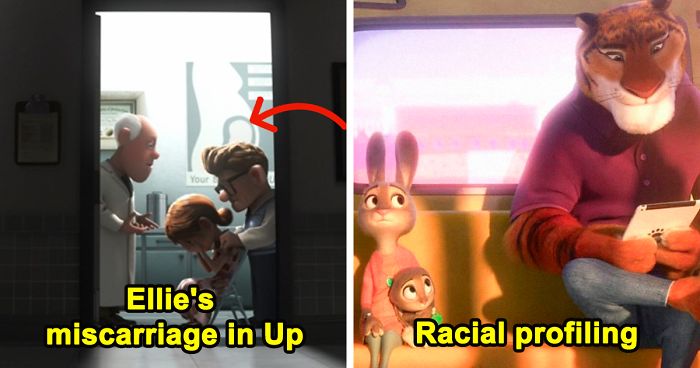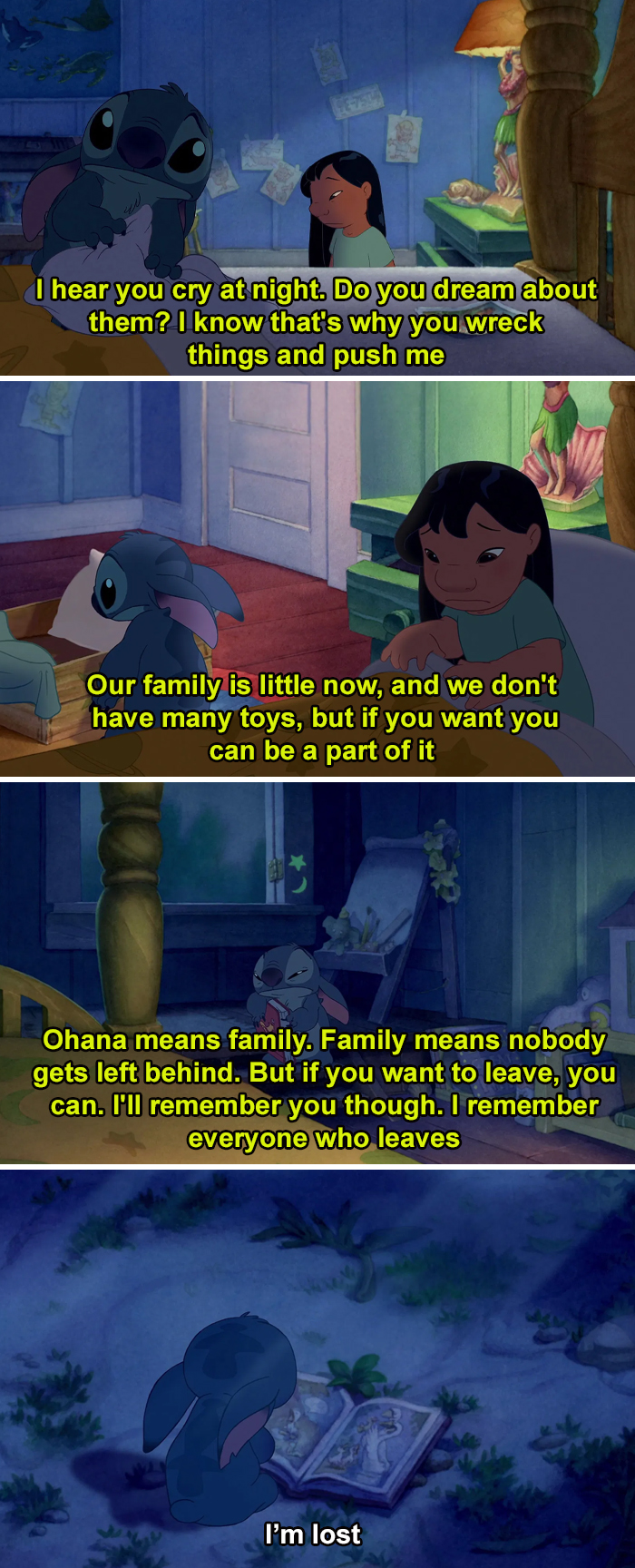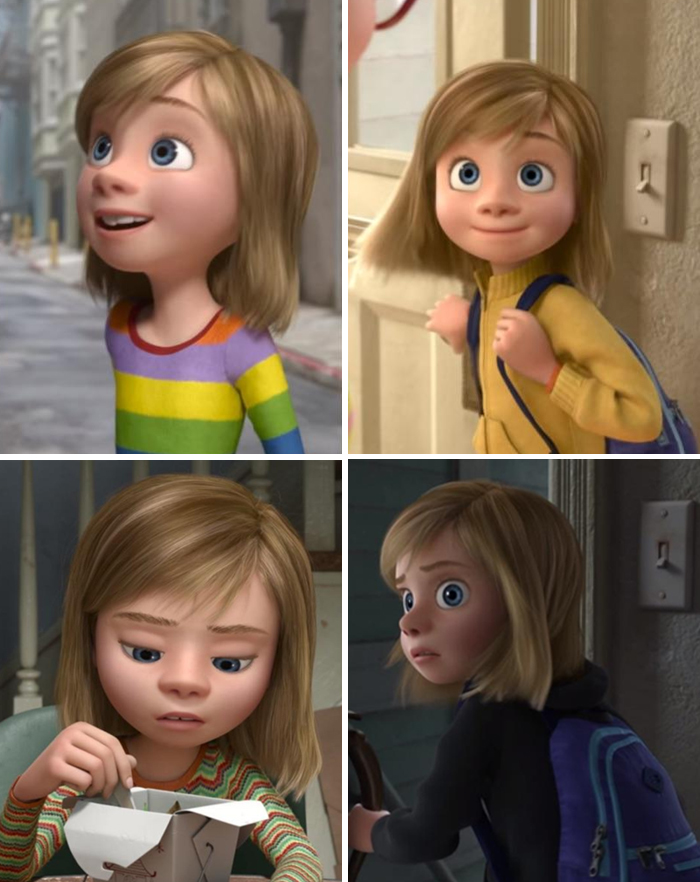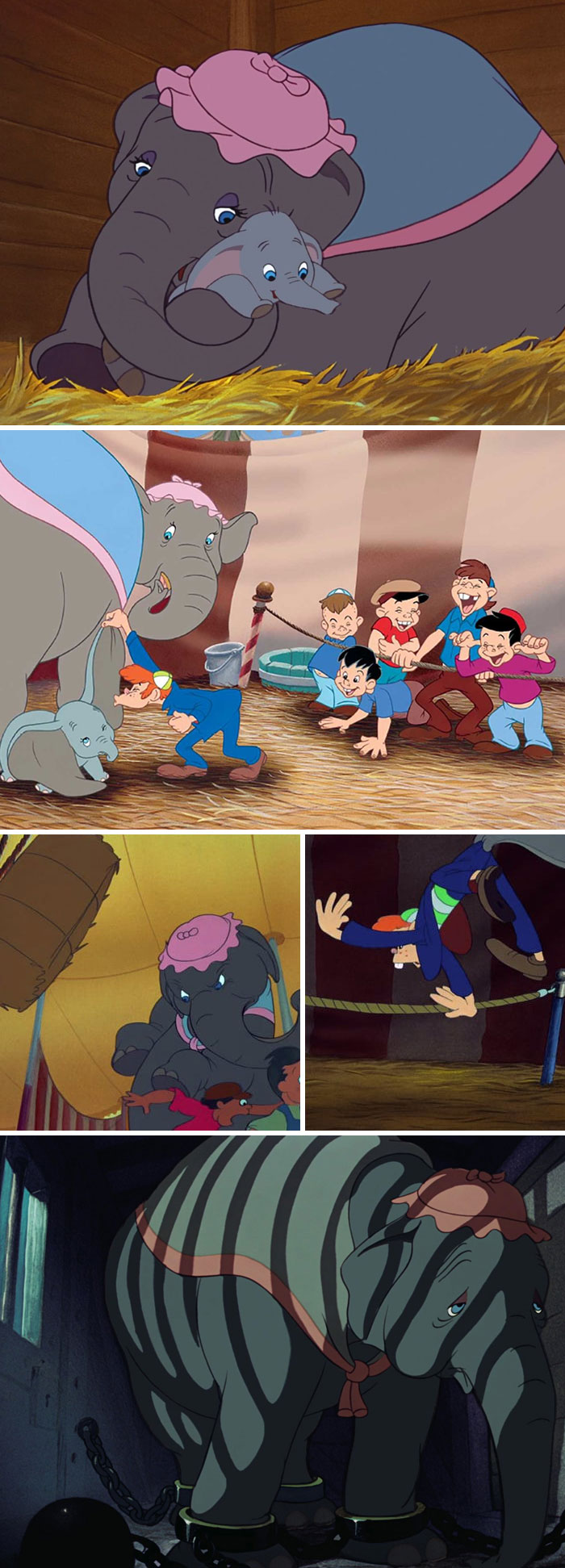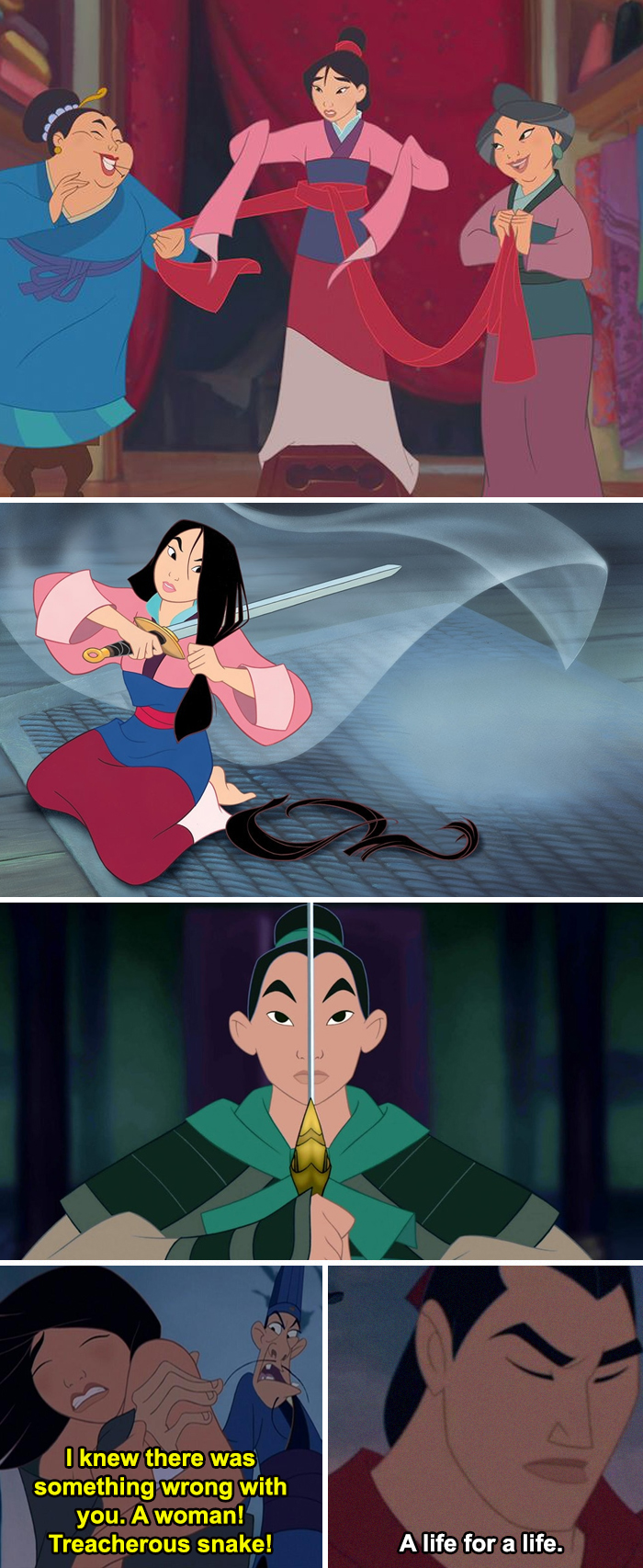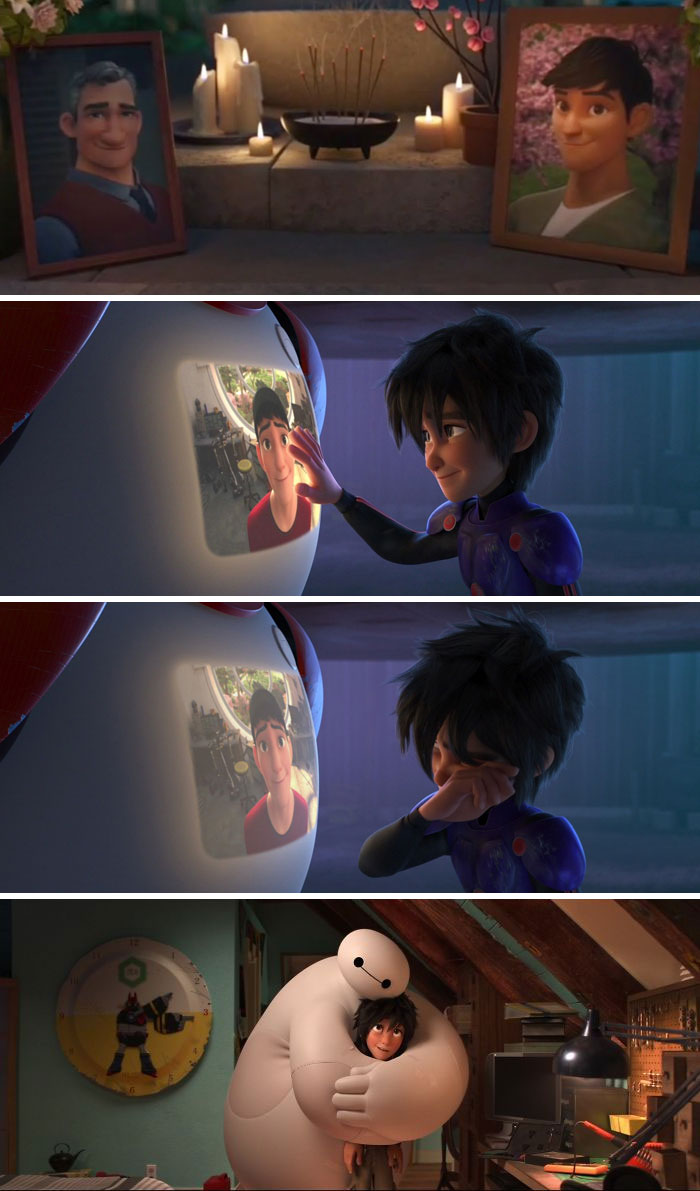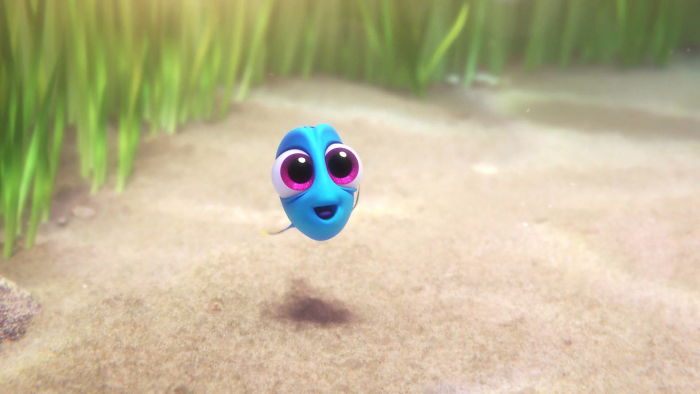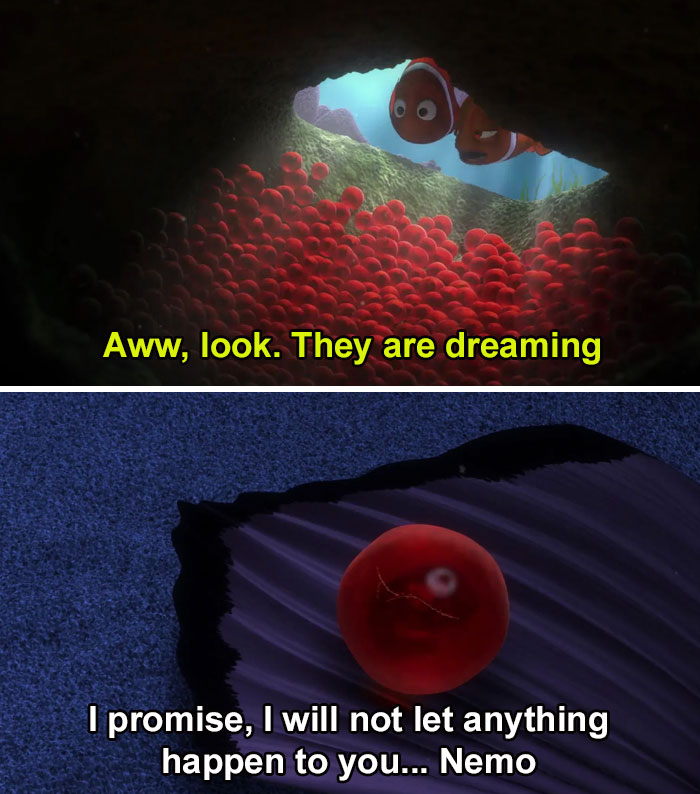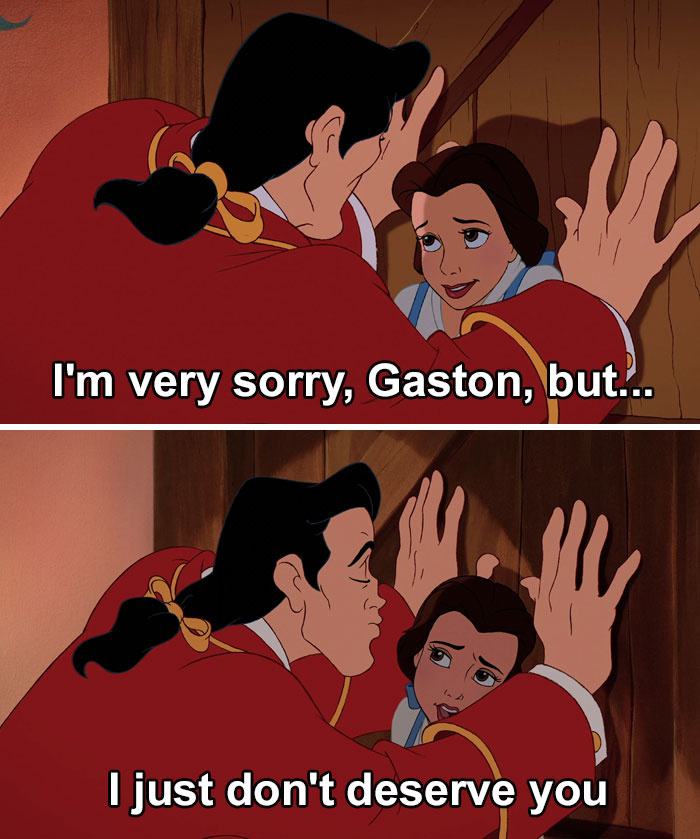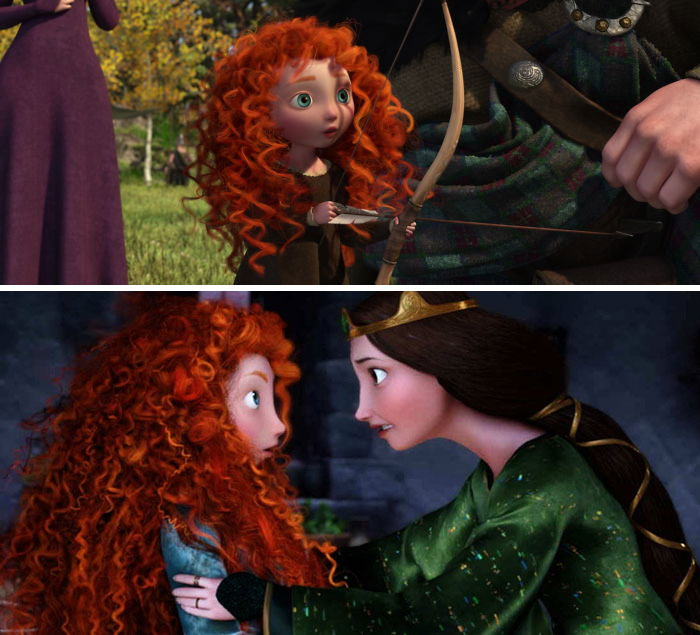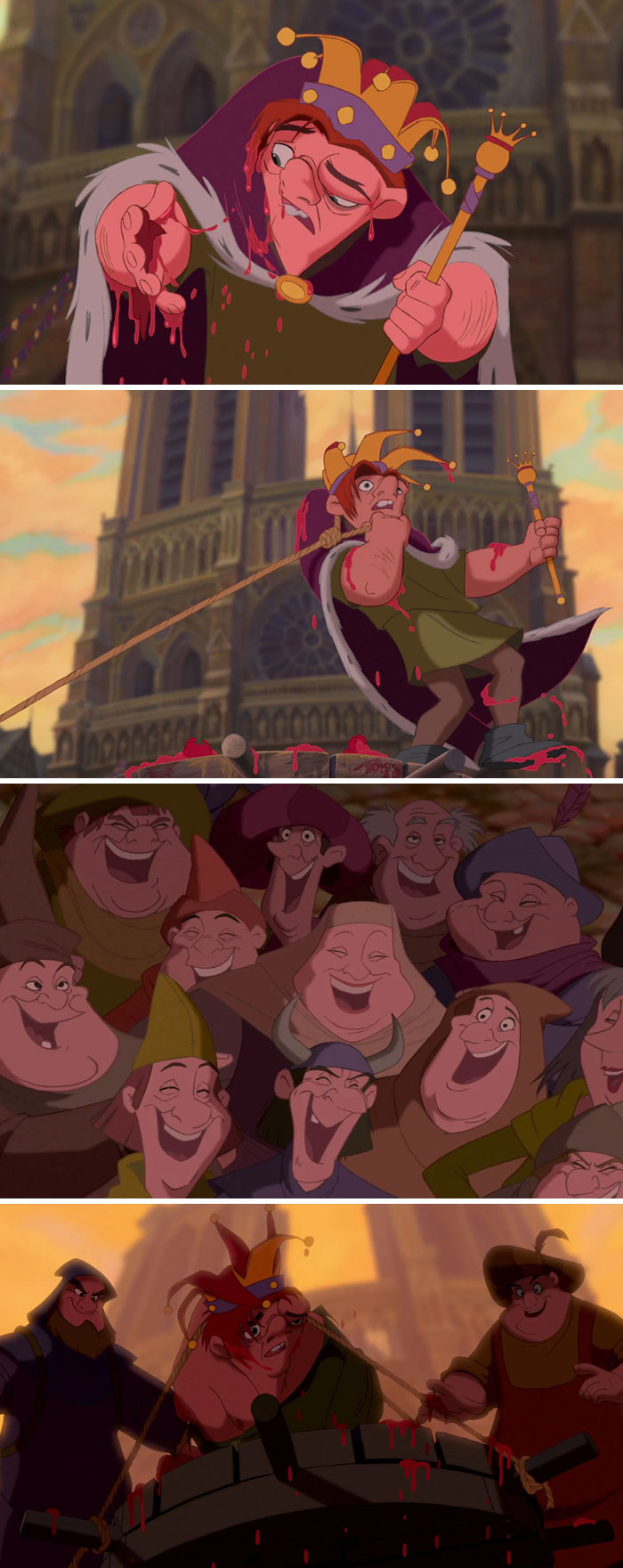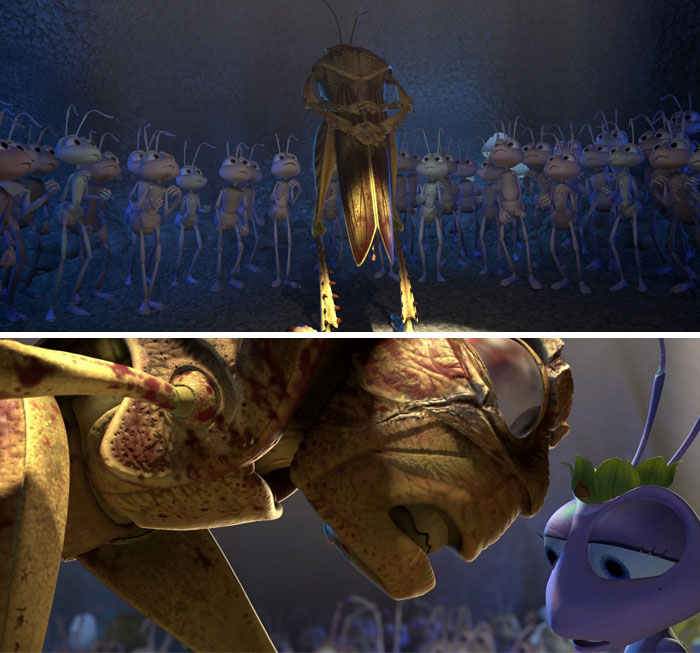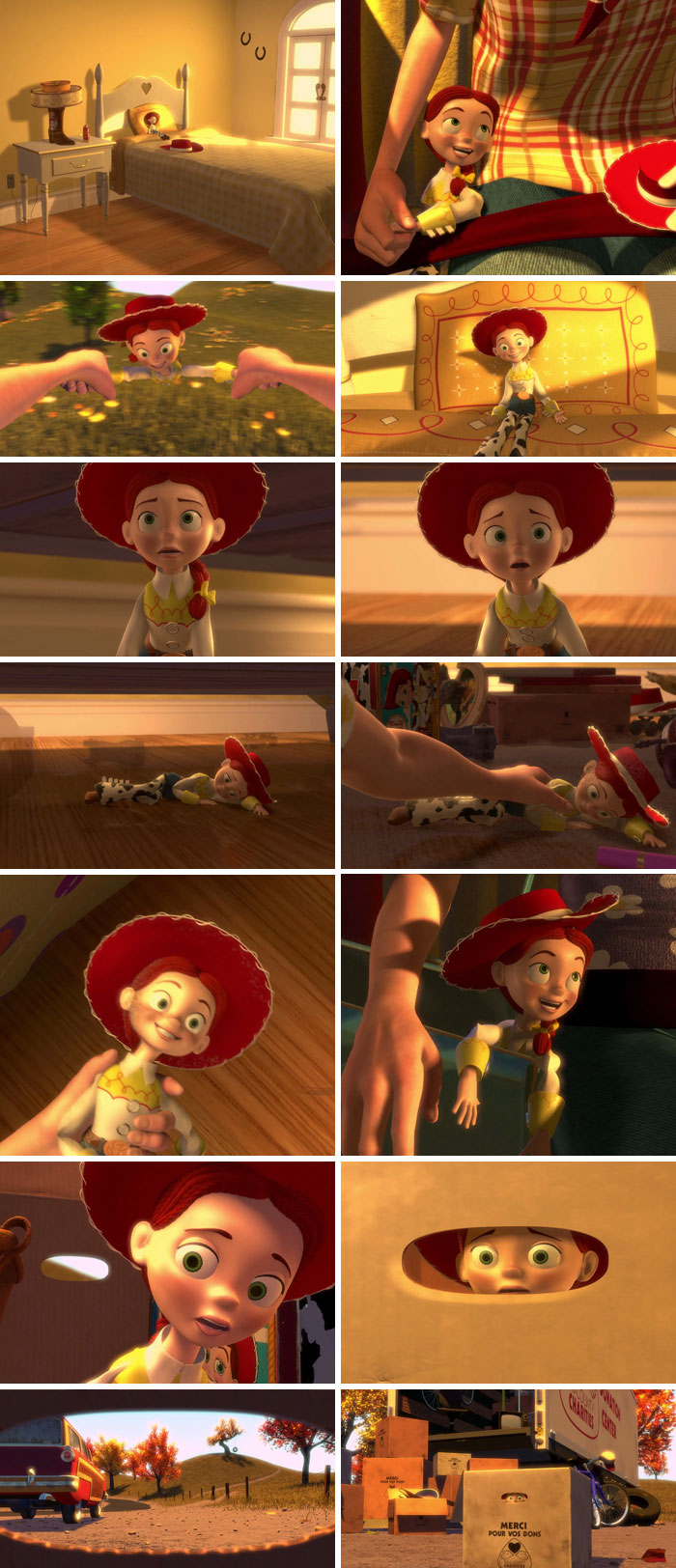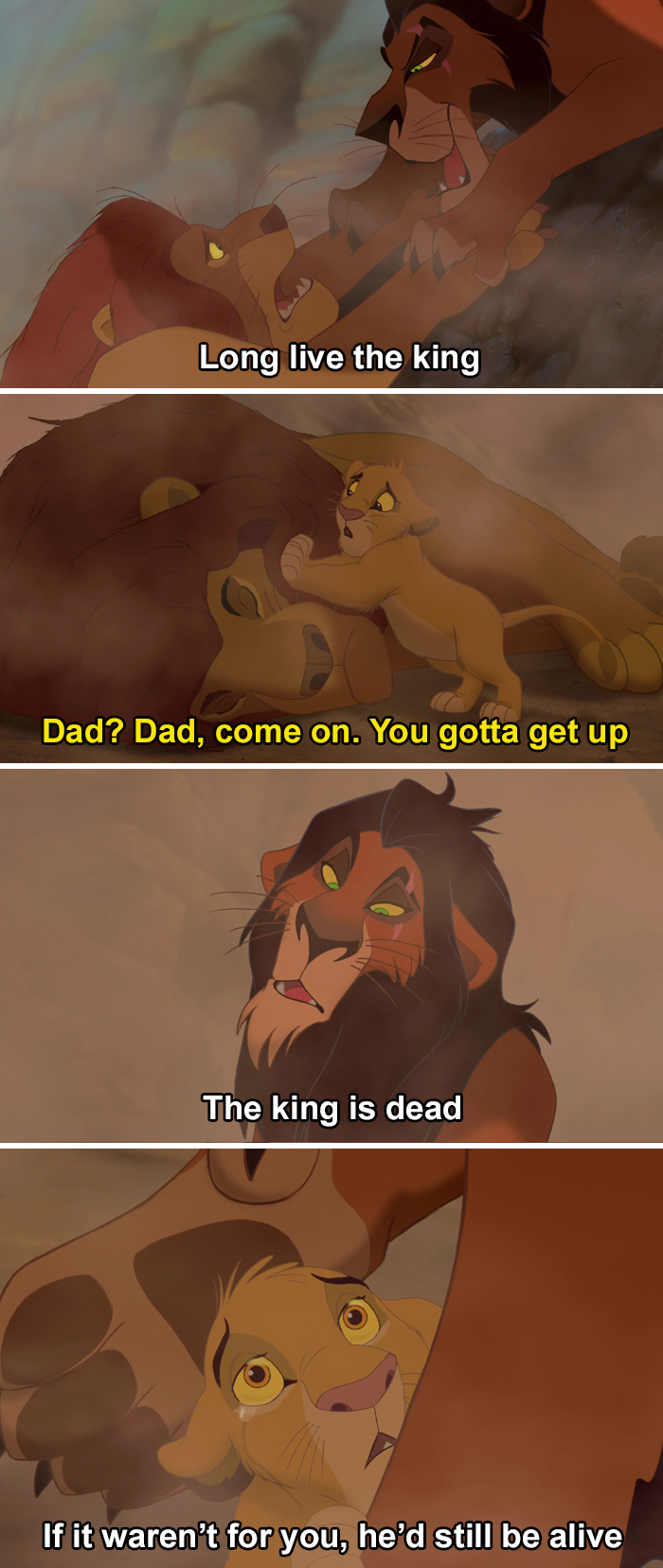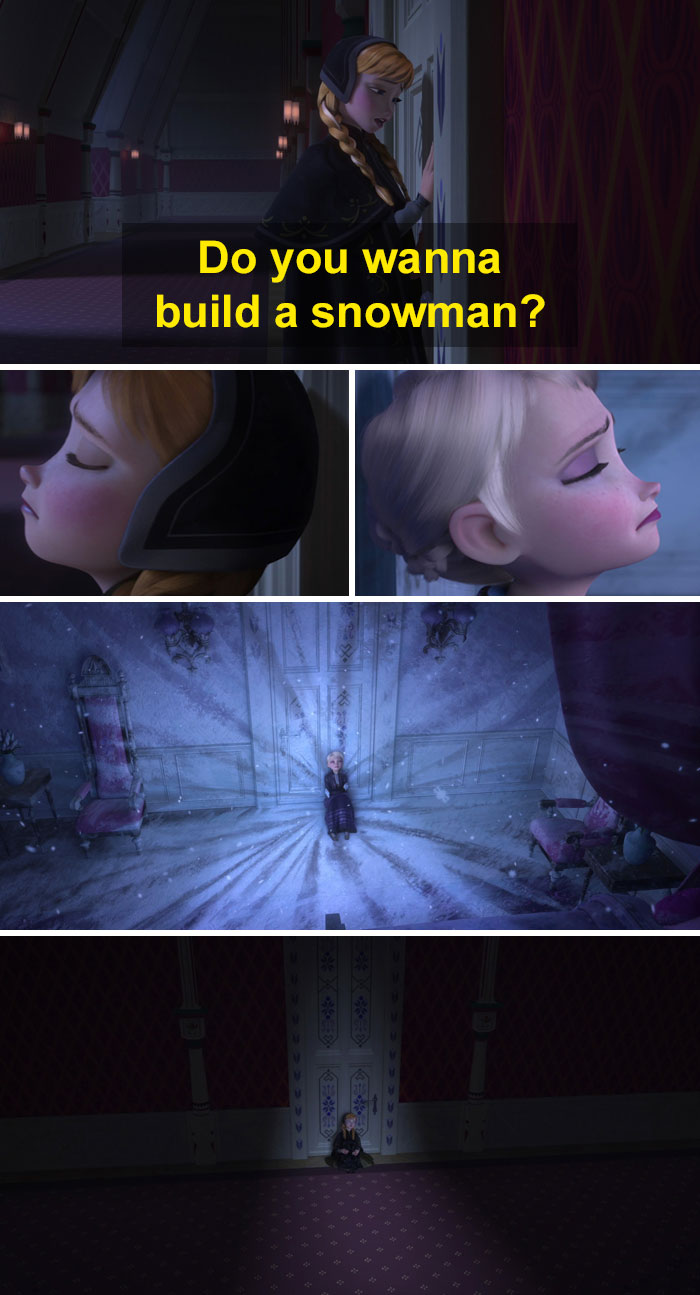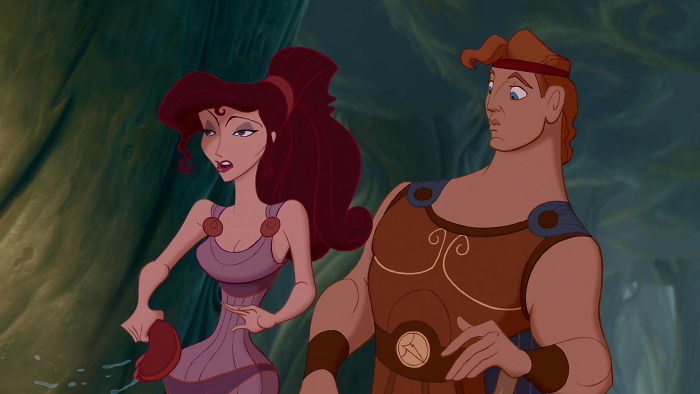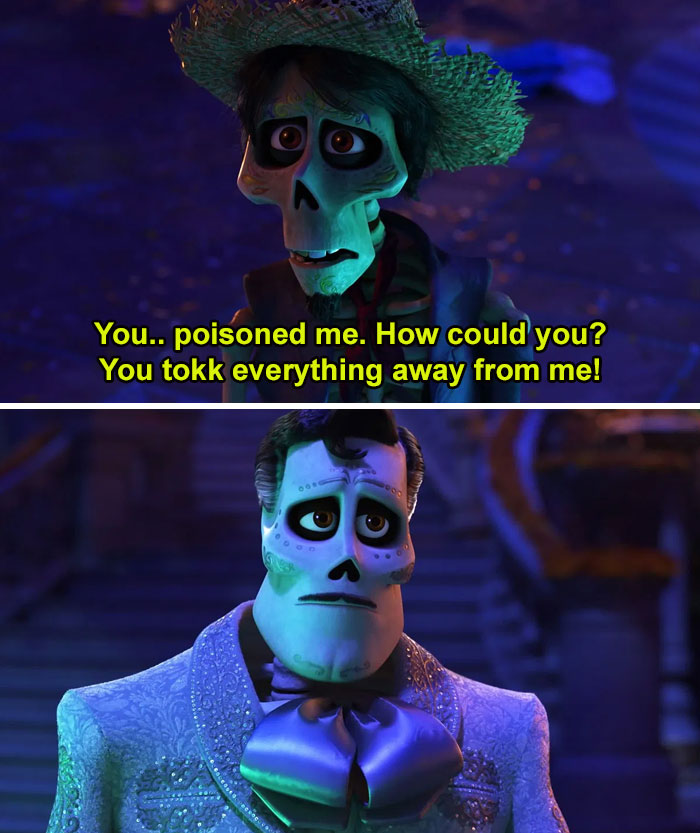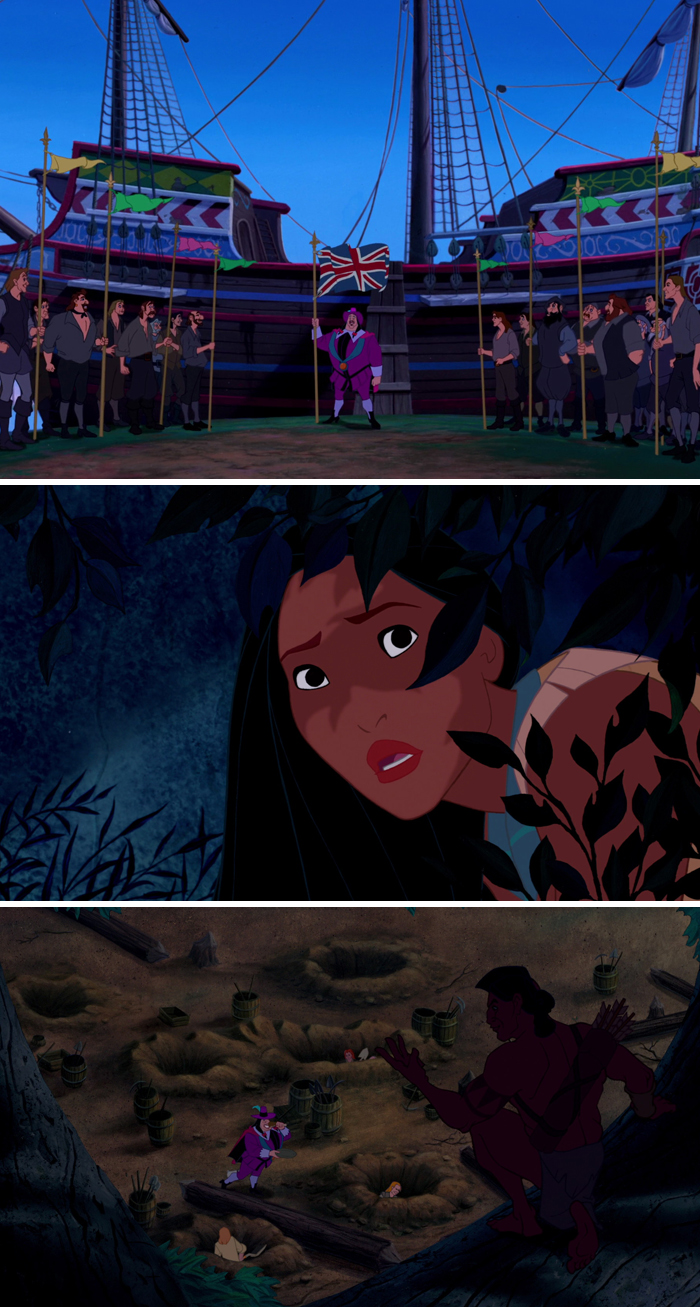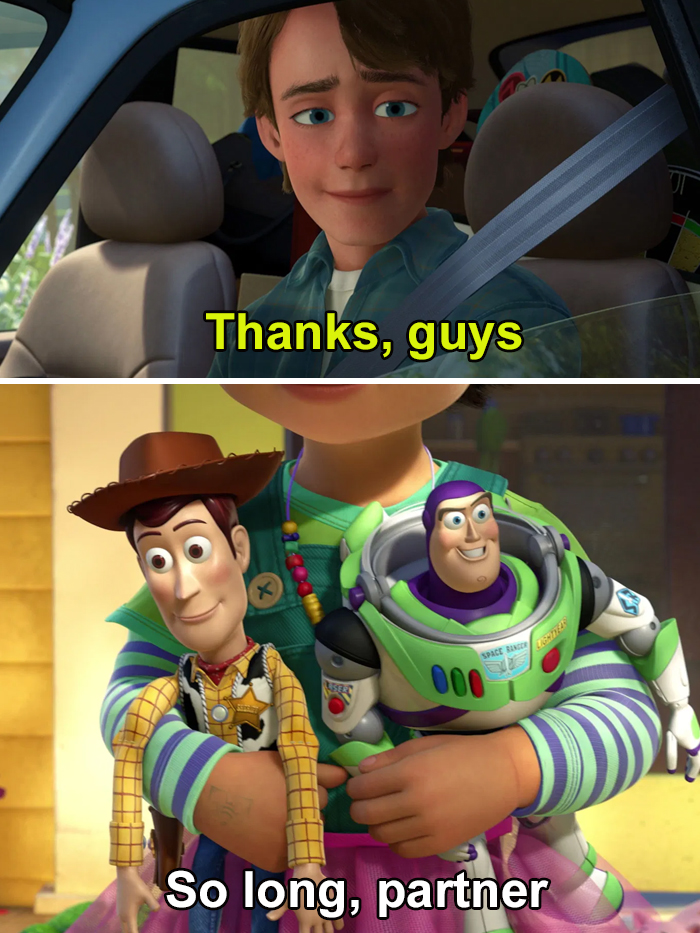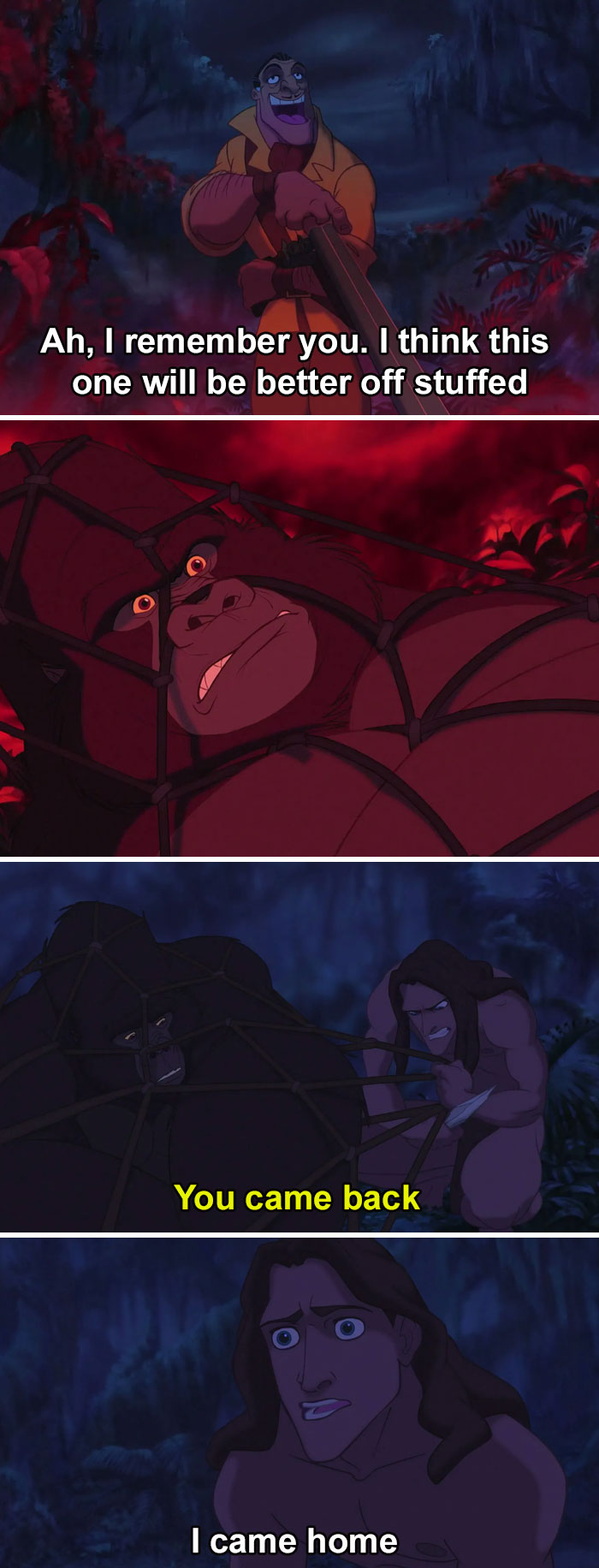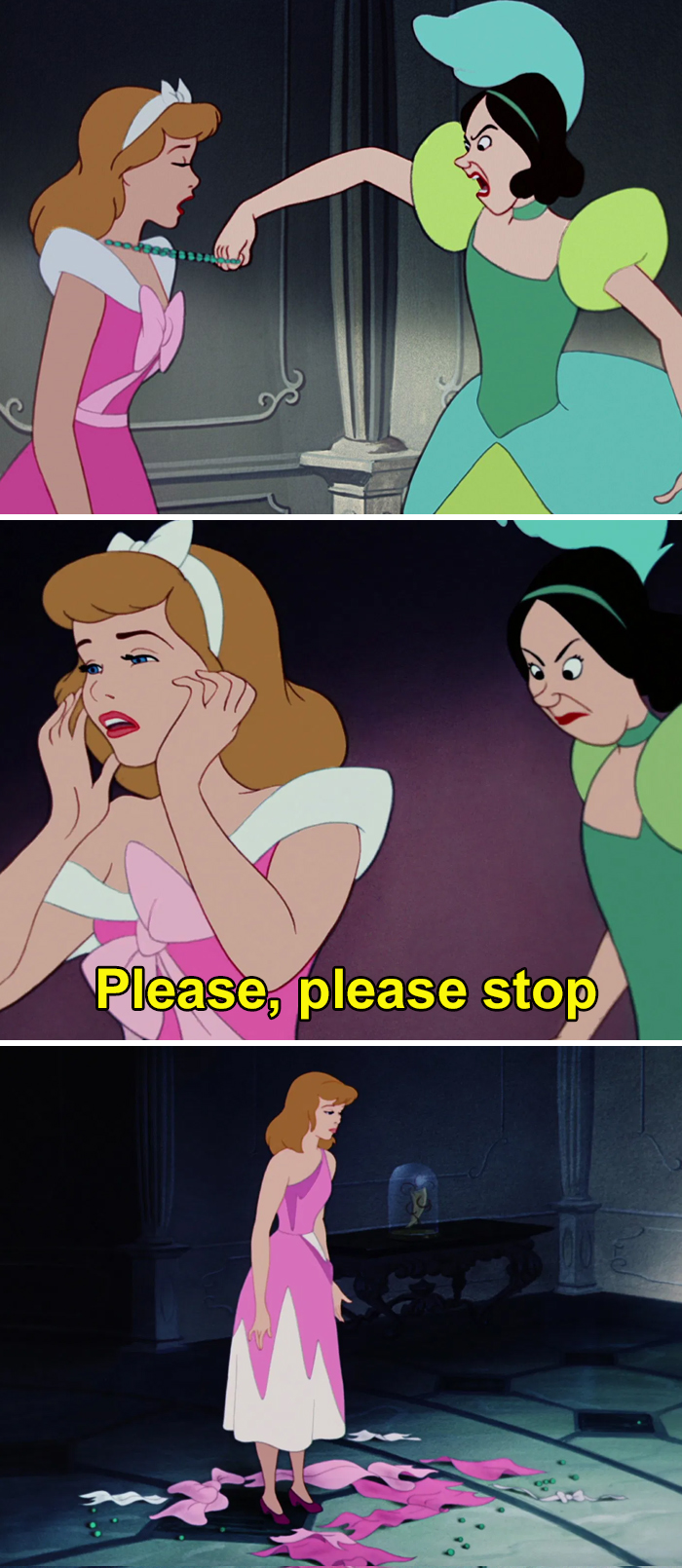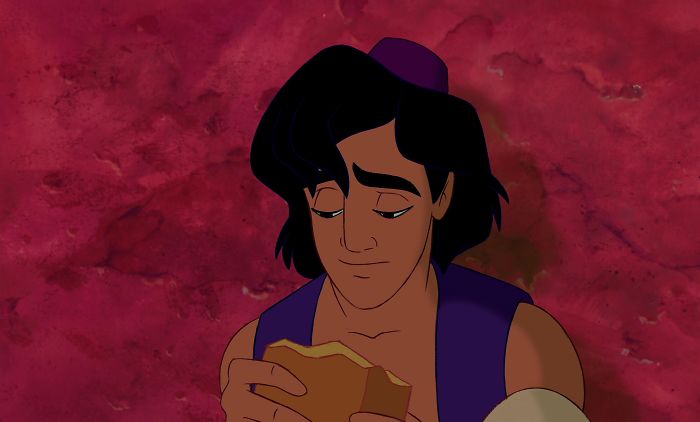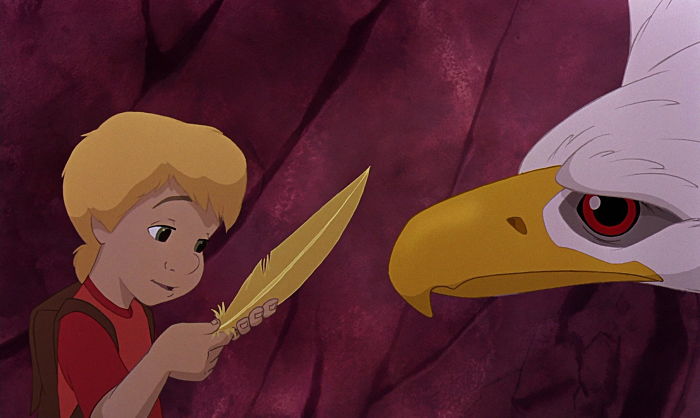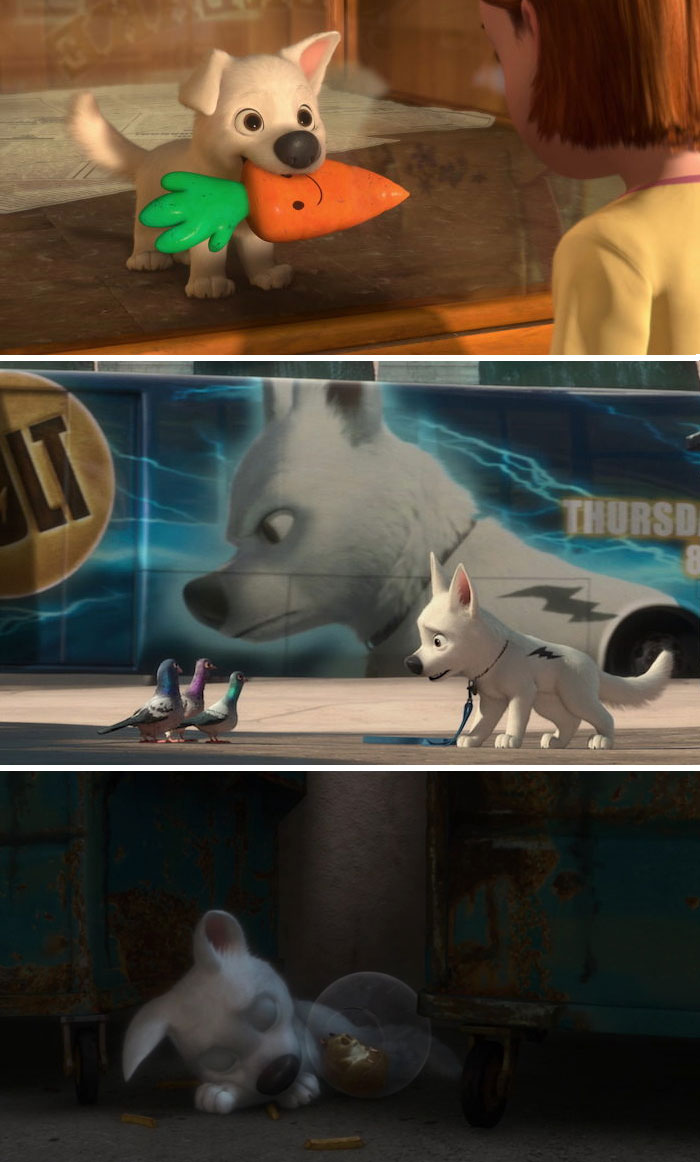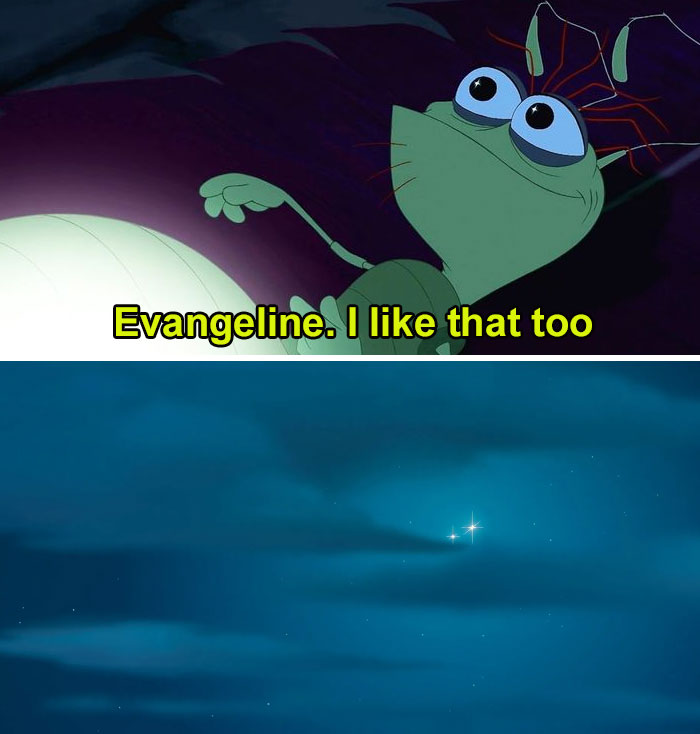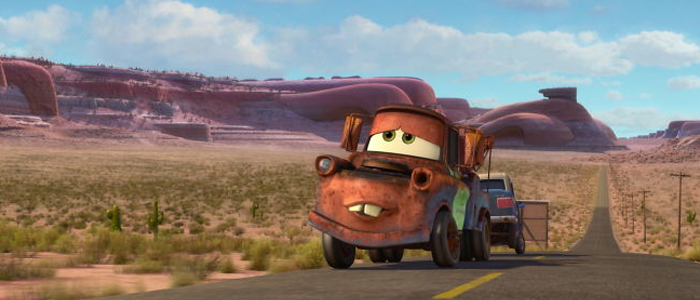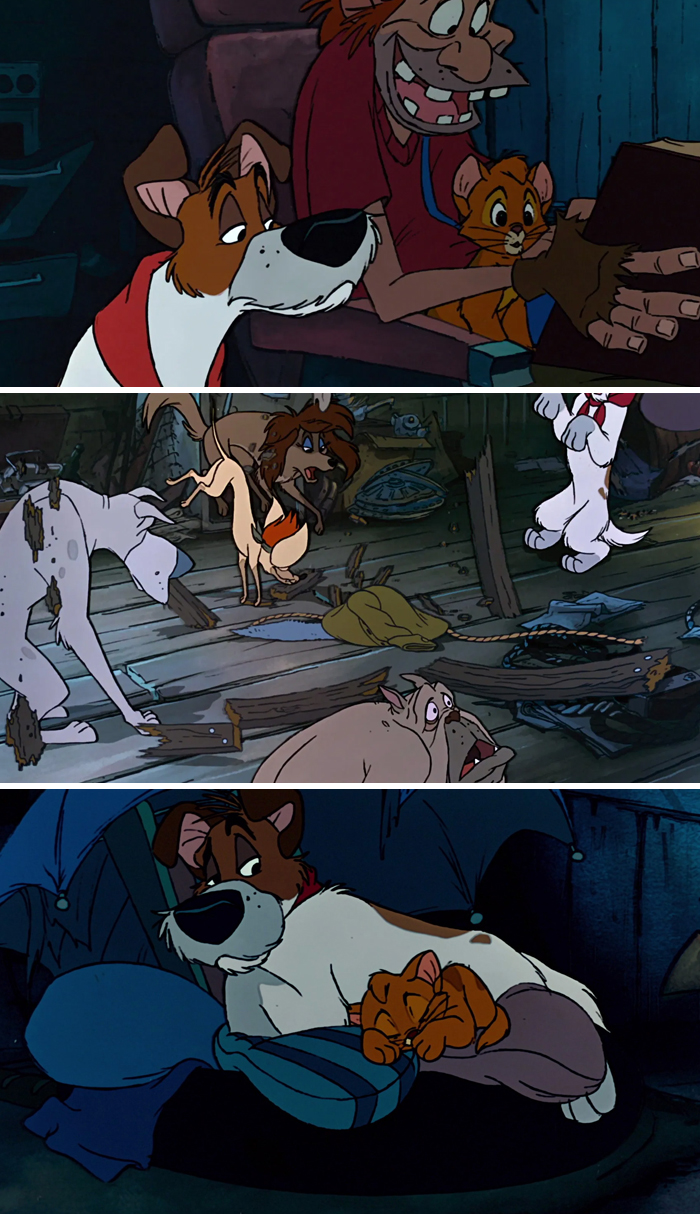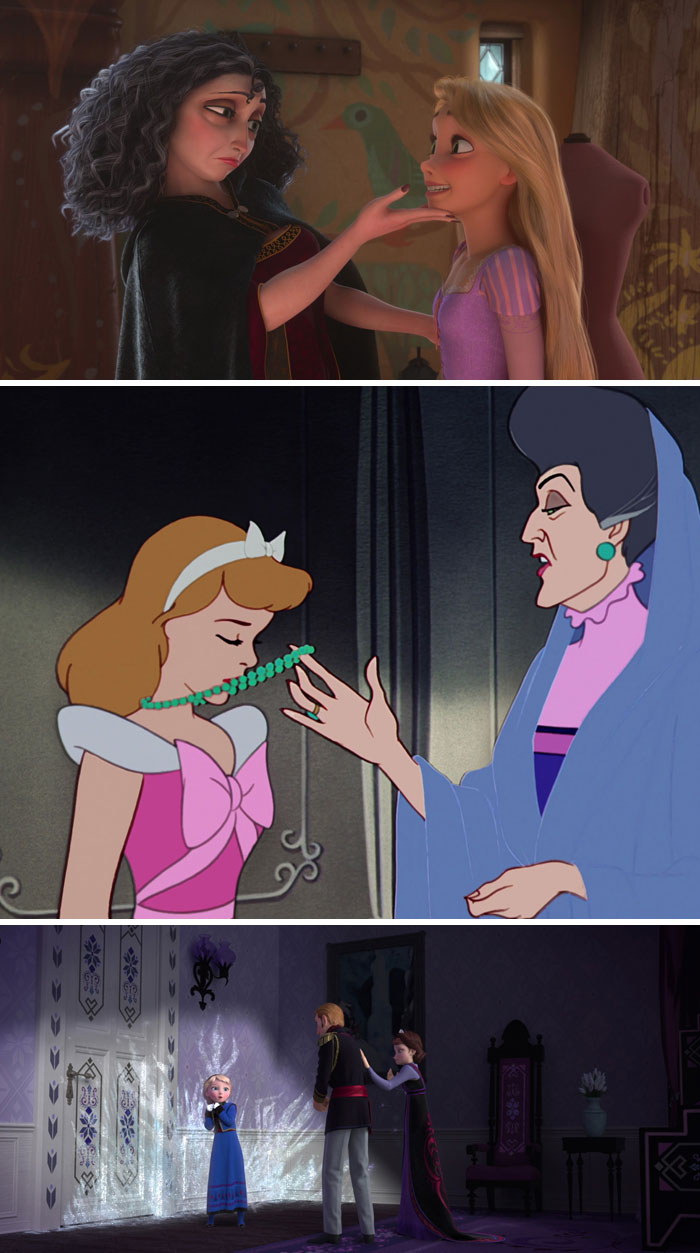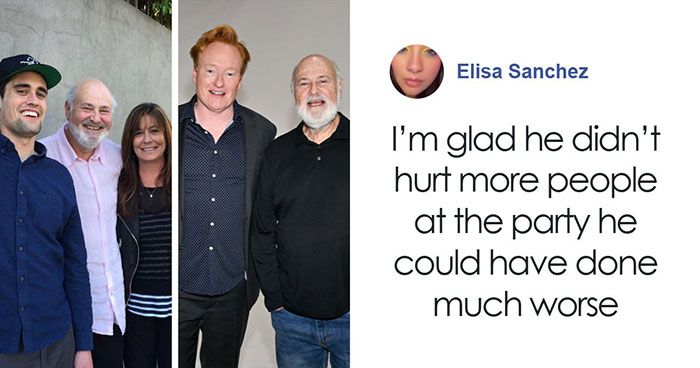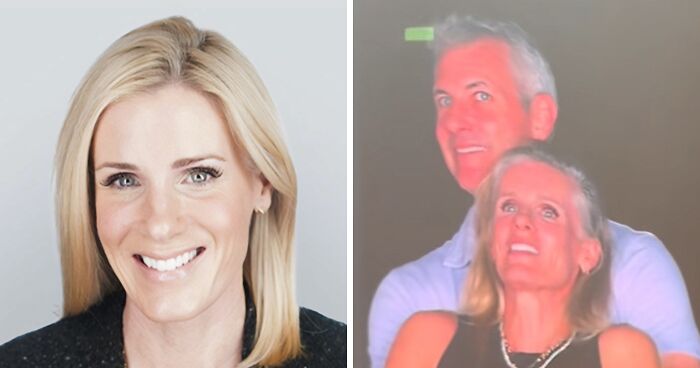When I’m feeling down, I put on an animated movie from my childhood to feel better. There’s nothing like a Disney or Pixar flick (or two, or three) to remind you about all the good that you can find in the world. However, these movies aren’t all about lighthearted fun all the time—they’re not afraid to tackle serious themes and crushingly dark moments.
That’s not necessarily a bad thing. In fact, it’s healthy. Overcoming hardship and tragedy makes us stronger while dealing with sadness head-on makes us feel more human. In other words, animated films that have serious moments help us mature as people.
BuzzFeed asked its fans about the dark and serious moments in animated movies and compiled a list of some of them. Scroll down to check it out and let us know in the comments what you thought of them. Remember to upvote the ones that left the biggest impression on you, dear Pandas.
This post may include affiliate links.
Up
In Up, some of the serious topics dealt with include miscarriage and depression that follows. Ellie found out that she was pregnant and she was so happy that she decorated the entire nursery at home. Later, she learned that she lost the baby.
Saddest intro to an animation to date. At the time in the cinema, the short that was shown before Up was the one with the rain cloud and the stork and honestly I was a hot mess by the time reached its contemporary story.
Lilo & Stitch
In Lilo & Stitch, the movie deals with losing loved ones, grief, and feeling lost and confused.
This is most felt in the scene where Lilo talks to Stitch about how her parents died in a car accident. Stitch later admitted that he felt lost.
Zootopia
In Zootopia, the film's creators talk about segregation, racial profiling, and the ridiculous idea that biological differences between races influence behavior, throughout the entire movie. The movie also alludes to how stereotyping is wrong and that we should all work together to reach equality.
I love how this movie portrays racism in a way kids can really understand too
Bored Panda reached out to talk about the serious topics in animated movies with Reddit user Niiue, one of the moderators at r/MovieDetails and an expert in everything related to films. Niiue told us that they believe one of the reasons why Disney references serious topics is because it serves "as a bonus for parents"—in other words, it keeps the adults interested in the story, too, not just kids.
According to the redditor, having serious topics in animations improves their stories because depth improves writing.
We also wanted to find out Niiue's opinion about the most serious moment that stood out for them in recent animated movies. "I think the first thing that comes to mind is how The Incredibles had numerous references to infidelity that I was too young to pick up on when I first saw it. I think the reason it stands out to me now is specifically because of how much it flew over my head as a kid."
Inside Out
In Inside Out, the creators of the movie gave proper attention to Riley's depression. They showed her depression as a real issue, instead of stating that Riley was just an angsty kid. Riley's clothes even represented how she felt.
Dumbo
In Dumbo, the animation deals with separation, animal cruelty and how animals are abused in the entertainment industry. This is most obvious during the scene when Mrs. Jumbo goes berserk when a kid messes with her child, Dumbo.
However, things don't end well for Mrs. Jumbo: she is whipped, choked, chained, locked up in a trailer, and not allowed to see her own child.
Mulan
In Mulan, the creators of the animated movie deal with themes of misogyny in society. Mulan proves throughout the entire film that a woman's place doesn't have to be in the home. Every single person can be smart, witty, tough, and capable, no matter their gender.
For me personally, the darkest and saddest moments in animations are when Simba’s dad Mufasa died in The Lion King and when Marlin and Nemo were the only ones left alive after the barracuda attack in Finding Nemo. (No, these aren’t tears, there’s just something in my eye.)
Disney films are chock full of surprisingly dark moments that you start to notice more and more of when you spot the first one. Elly B writes on The Artifice that what connects both Disney and Pixar movies are that they’re willing to include “weighty and emotionally hard-hitting” topics. From grief to prejudice to living with disability.
Moana
In Moana, one of the most bittersweet ideas is that the loved ones that we lose are never truly gone—they'll always be with you. This is best shown in the scene when Grandma Tala, who is dying, says goodbye to Moana.
Big Hero 6
In Big Hero 6, the focus of the story isn't just about relocation—it's the heavy loss of a beloved family member and the grief that comes with it.
Baymax, who is a healthcare robot, sees that Hiro is grieving and helps him cope by helping him reconnect with his friends and the outside world. (Lots of hugs help, too!) The movie also deals with mental health, abandonment, and the theme of revenge.
Finding Dory
In Finding Dory, the creators of the movie deal with the topic of being someone who is neuroatypical through Dory's character.
The film showed that it's alright to be neuroatypical, that you're not less of a person, and that people with intellectual disabilities can lead happy lives, just as Dory was able to find her parents.
Of course, some parents might think that their kids are too young for some of the heavy lessons these movies might teach all of us. However, the harsh truth is—you can’t always protect your kids from the real world. No matter how much you might want to.
What Disney movies do is they present a serious, sometimes dark, issue and help the characters and the audience understand what the best way to deal with the situation is. So instead of ignoring possible problems that kids might run into, these films help provide them with emotional toolboxes to overcome the challenges that await them.
Finding Nemo
In Finding Nemo, Disney and Pixar talk to the audience about the topic of love and losing those closest to you. Dad Marlin and his baby son Nemo were the only ones who survived the barracuda attack. Marlin lost his wife and all of his other children.
Beauty And The Beast
In Beauty and the Beast, Disney tackles the very serious topics of sexual harassment, sexism, social shunning and male entitlement. Nearly every scene with Gaston and Belle in it shows his ungentlemanly and demeaning attitude toward her.
And the Beast didn't start out a treat, either. I still love the sly meaning Belle gives "I just don't deserve you". (As in, I'm too good for you, whereas he hears he's too good for her.)
Brave
In Brave, the creators deal with the serious topics of sexism, forced gender roles, and the expectations that the patriarchy has of young women throughout the entire film.
I feel like Brave is a better example of overcoming sexism than Mulan (I love Mulan, just saying). Merida sets out to prove herself, she doesn't want or a need a man fighting for her. Mulan sets out to save her father, she doesn't particularly care about changing the way society sees her, she just wants to save her family.
The Hunchback Of Notre Dame
In The Hunchback of Notre Dame, Disney deals with lots of dark themes, including bullying others because they're different, ableism, racism, sexism and sexual harassment, poverty, genocide, and corruption.
One of the most powerful and darkest scenes is when the crowd bullies Quasimodo, throws tomatoes at him, and ties him up because he looked different.
A Bug's Life
In A Bug's Life, the topics of authoritarianism, fascism, dictatorships, and government corruption are discussed throughout. Some also interpret the movie to have some overt references to Nazism.
Monsters, Inc
In Monsters, Inc., one of the most serious topics is learning how to say goodbye to those that you love the most. It's perfectly encapsulated in the scene when Sulley hugs Boo goodbye and leaves through the closet.
Some other serious themes peppered throughout the film deal with corruption and capitalism.
Toy Story 2
In Toy Story 2, the movie deals with abandonment issues and the idea that just because somebody was abandoned doesn't make them incapable of love.
In the animation, we learn more about Jessie's backstory, specifically that she was abandoned. However, this doesn't mean that was was no longer able to give or receive love. What's more, this didn't make Jessie less deserving of being loved.
The Lion King
In The Lion King, the animated movie touches upon the topic of how power corrupts and how the desire for power can lead to awful things, even tearing families apart.
This is shown especially vividly when Scar kills Mufasa and then blames it on baby Simba.
I don’t care how morally good you are, given absolute power you will become corrupt. History has proven this time and time again.
Frozen
In Frozen, the difficulties and challenges of building a healthy relationship with your siblings are analyzed, not just the positives.
The movie addresses how you have to come face to face with pain, ambivalence, jealousy, rivalry, and sometimes even hate if you want to create a compassionate relationship with your sibling.
My siblings and I have been through so many ups and downs together and thankfully we have come out strong. My sister hung out with a bad crowd in high school and seeing how this changed her changed our relationship for a while. My little brother, who is really my godbrother, has essentially been abandoned by his parents into the care of my parents. He has trust issues with male figures in his life and sometimes argues with my dad which makes me get mad at him. However, at the end of the day, I love both of my siblings more than anything in the world.
Hercules
In Hercules, the themes of sexism and sexual harassment are featured in the movie.
These two topics are addressed through Meg's character who in one scene says that men think that 'no' means 'yes' and 'get lost' means 'take me.'
Coco
In Coco, the characters deal with the serious topics of friendship and betrayal.
The scene that teaches the audience about these two themes is the one where Ernesto reveals that he poisoned Héctor,
This scene was seriously dark. The fact that Ernesto even uses a poisoning scene in one of his movies that imitates Hector's death straight down to the toast is downright twisted. It also is especially effective at revealing the twist villain. Up to this point, Hector was still seen as the comedy relief character and we still thought Ernesto was related to Miguel.
Pocahontas
In Pocahontas, the film's creators address the serious and dark themes of racism, as well as colonialism and its negative effects.
These two themes can be seen throughout the movie.
I might get downvoted for this, but I don't care, Pocahontas was also about one race believing that they were superior to another and for that reason decided to treat the other race anyway they saw fit. It was also about thinking that you deserve something that didn't and never did belong to you.
Toy Story 3
In Toy Story 3, the movie deals with the theme of how each and every one of us eventually outgrows our pasts and how that's a good thing.
The scene which captures the essence of this is the one where Andy gives all of his favorite toys to Bonnie.
What's more, Toy Story 3 also deals with themes of authoritarianism, just like A Bug's Life.
did you also notice we never see andy's dad and almost all his toys are male?
Tarzan
In Tarzan, the characters deal with the topic of finding hope even though they suffered losses that seem insurmountable and impossible to get over.
The scene that illustrates this best is the one where Tarzan rescues his loved ones and finds home in the family that he chose.
Cinderella
In Cinderella, the creators of the animated movie tackle the topics of losing a parent, parental neglect, and how far from everyone comes from a happy, loving home. One of the darkest scenes is when Cinderella's evil stepsisters tear off her homemade dress.
Aladdin
In Aladdin, one of the main serious topics is extreme poverty, never having enough food, and the desire to live better.
In fact, you could say that if Aladdin didn't live in poverty, the entire plot of the movie (or its sequels) would never have happened.
Some of the other main serious themes were corruption, greed, slavery, and patriarchy.
Poverty was not the main topic here. The film certainly addressed poverty but corruption and power were far more important themes as was personal freedom from slavery (Genie) and patriarchy (Jasmin). Ultimately the message of the film was about doing the right thing - no matter what the personal cost might be, from Aladdin giving away his bread in the beginning to making his last wish in the end.
The Rescuers Down Under
In The Rescuers Down Under, the film's creators address the themes of environmental preservation and protecting endangered species. They also tackle the topic of illegal poaching.
Bolt
In Bolt, a couple of more serious topics that can be found between the lines are related to lying and treating animals right.
If Bolt never believed that he had superpowers, the entire plot of the movie would never have happened and there would be no need for the film in the first place.
That's a bit of a redundant point. If characters didn't do what they're supposed to, then there'd be no point of any movie being made. :)
The Princess And The Frog
In The Princess and the Frog, the topic of accepting your fate, however bad it might be, is shown to the audience.
Ray the Firefly accepts his fate, knowing that something good would come from having stolen the trinket and having fought off Facilier's demons. Ray then peacefully passes away, surrounded by his friends.
Aren't they also forgetting that the actual princess in the frog accepted their fate? I think that's bigger than what they are going for
Cars 2
In Cars 2, the story throughout the entire movie talks about climate change, nature, and the effects that oil has on the world.
Oliver & Company
In Oliver & Company, the movie deals with the serious topic of living and surviving in extreme poverty.
Not gonna lie, I'm tearing up right now thinking about the beginning with Oliver in the box alone
Tangled, Cinderella And Frozen
In Tangled and Cinderella (and partially in Frozen), the topic of parental abuse and neglect is addressed. However, not everyone agrees with this interpretation.
Tangled and Frozen were not about parental abuse. Rapunzel's captor took on a parental role but she was never a parent and barely behaved like one. Elsa's parents in Frozen loved and adored her and were trying to protect her. They may not have got it right - but that does not constitute abuse.
it is good for children to learn even abstract concepts about life.I am 50 years old and I still remember the cartoon about chickens and a fox that life is not wining always the good person.i was 8 wears old
Well, I grew up with all those Japanese cartoons for more mature audiences and remember asking questions like "what is democracy", "why does queen Marie Antoinette look like an evil witch in Seine no Hoshi while in Lady Oscar she's so cute an pure" and "why do the bad guys in Hokuto no Ken always become good the moment before they die". (Reworded for clearer understanding) Yeah, I wasn't even 10 either. Children aren't fools and keeping them in oblivion from serious topics is not doing them any favour. That's why I'm against censorship, because that's essentially what it does.
Load More Replies...To be honest, I've always felt that Pixar was better at tackling the heavier issues than Disney itself was. Pixar movies often had darker, more mature themes lurking behind their movies.
True. I feel like this too, and this is why I generally prefer Pixar. But I believe the reason for this is because Disney is more inclined to make film adaptations of works of literature that usually are no child care material. Their task is to make these "family friendly", so as a result, their films, although nice and fun, tend to feel censored and milded down. Pixar, on the other hand, is more about original stories, so they don't have the burden of remaining faithful to the original source, because the film itself is the original source. (Sure, they may remind you of other works, sometimes, like Onward reminded me of Fullmetal Alchemist, but that's because various artists inspire each other, and that's a different topic.)
Load More Replies...I can't watch Dumbo for other reasons. Those damned pink elephants on parade traumatized me as a child!
Load More Replies...it is good for children to learn even abstract concepts about life.I am 50 years old and I still remember the cartoon about chickens and a fox that life is not wining always the good person.i was 8 wears old
Well, I grew up with all those Japanese cartoons for more mature audiences and remember asking questions like "what is democracy", "why does queen Marie Antoinette look like an evil witch in Seine no Hoshi while in Lady Oscar she's so cute an pure" and "why do the bad guys in Hokuto no Ken always become good the moment before they die". (Reworded for clearer understanding) Yeah, I wasn't even 10 either. Children aren't fools and keeping them in oblivion from serious topics is not doing them any favour. That's why I'm against censorship, because that's essentially what it does.
Load More Replies...To be honest, I've always felt that Pixar was better at tackling the heavier issues than Disney itself was. Pixar movies often had darker, more mature themes lurking behind their movies.
True. I feel like this too, and this is why I generally prefer Pixar. But I believe the reason for this is because Disney is more inclined to make film adaptations of works of literature that usually are no child care material. Their task is to make these "family friendly", so as a result, their films, although nice and fun, tend to feel censored and milded down. Pixar, on the other hand, is more about original stories, so they don't have the burden of remaining faithful to the original source, because the film itself is the original source. (Sure, they may remind you of other works, sometimes, like Onward reminded me of Fullmetal Alchemist, but that's because various artists inspire each other, and that's a different topic.)
Load More Replies...I can't watch Dumbo for other reasons. Those damned pink elephants on parade traumatized me as a child!
Load More Replies...
 Dark Mode
Dark Mode 

 No fees, cancel anytime
No fees, cancel anytime 






